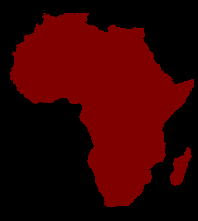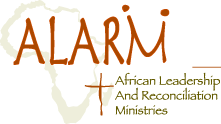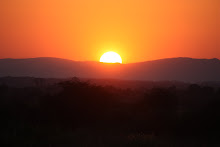Three o’clock on a warm winter afternoon. My Woolworths suede boots struggle across the rocks and rubbish along the side of the tarred road. I smell urine and dust. Foreign dialects and babies crying tug at my attention.
To my right, groups of East African men huddle together in front of a brand new razor fence that has been pushed over and now lies flat on the yellow African wild grass. Weary heads nod at us in friendly acknowledgment. Some older men gather their bones and walking sticks to shuffle towards us.
“Mama,” they say to Sister Ané with much respect.
Hands shake, smiles shared.
“How are you doing today?” she asks in her strong Irish accent.
“OK, today.”
Brows bow in despair.
“Are you really ok?” she asks again.
“No, I am not well.”
On my left, the neglected refugee camp stretches beyond my own horizon. Tired mothers with sick children on their hips queue outside a brand new MSF mobile clinic. As we walk towards the open gate, a bright red van is about to pull out with MSF 8 written on the front door. Doctors Without Borders volunteers greet us friendly yet with well-earned caution. Short introductions follow, with official mandates and concerns shared through the driver’s window.
Inside the car, Nicole, a Canadian psychiatrist expresses her worries and struggles to contain her anger with the situation. On the outside, we know exactly what she is upset about and silently send up prayers of thanks for an international individual joining our forces to get the world’s attention about what is going on and what is not happening.
“This government want the 2010 World Cup to come here, but look at this!” she says in disgust.
“It is almost like China and the Olympics,” I reply.
“We will be here until tonight if you get me started on that one,” she responds.
Inside the larger camp, I meet James, a Rwandan with film-making experience and the local leader for his countrymen. He tells me about how he acted as one of the soldiers in Hotel Rwanda when it was shot here in South Africa some years ago. I share my short stories about the two times I went to visit and work in his home country. I show him a few dance moves of one of Rwanda’s folk songs which I learnt there. He laughs at me.
“I can see you know how to do it,” he says and stares into the distance for a few seconds, “that is a beautiful song’s dance that you are doing.”
James asks me about what I saw last year when I went to his country. I tell him about how peaceful it seemed and he assures me that it will always look like that to visitors because that is part of their culture. Rwandans will always appear very polite and welcoming to each other in the presence of visitors. He tells me the same story I’ve heard from many of my Rwandan friends; how the genocide had nothing to do with genetics but with power and politics.
“I don’t trust the current Rwandan government,” he says with heavy suspicion flashing in his eyes.
“I have a Congolese friend who is married to a South African and he tells me the same,” I respond.
“Did you know that it was a Tutsi leader who started the massacre of Tutsi’s in 1994?” he asks.
“Yes,” I say.
We talk some more about how superficial transformation can be when a country gets lots of press attention and foreign aid after a tragedy or regime has come to an official end. I try to steer the conversation to a more hopeful direction.
“I have a Rwandan name that was given to me the moment I crossed into your country from Uganda by a Rwandan friend Neshimwe¬¬,”
“Do you know what it means?” he asks me with one broken front tooth spoiling his perfect smile.
“God be praised,” I answer.
“Yes, we must pray. This country is killing me and has taken my future.”
“Yes, I am sorry that you have to feel like this. I am so ashamed at how my fellow South Africans are treating you.”
“Did you know that Colorado Film School asked me to come and study with them? But the man at Home Affairs just told me that I should get into America like I got into South Africa and that he will not give me any papers to go to America.”
He asks me for my phone number before our little group starts to move further south towards the Muslim camp.
“I am very careful to give my phone number to strange men,” I say and move closer to my colleague who visits with the refugees on a daily basis, “I will be back and then we can talk about contact information.”
“I am not a cheater,” he says with a laugh and points to his wedding ring, “I will see you at another time, then. Thank you for coming to visit us.”
We progress slowly. So many people in need that want two minutes of our time and eye contact, a word of hope or promise, a gentle human touch of their cold hands or arms or sad faces. On our way past the treeless field where the UN had promised to put up a tent which still lies in a store room to date, I see an empty cartridge case lie in front of my feet. I pick it up and put it in my pocket. When we reach the tar road we have to stop three times to visit with small gatherings of men before we can turn left again into the Muslim camp.
A young man walks up to us and greet my friends by their names. With their sleeves pulled over their hands preventing them from touching the skin of infidels, he reaches out to us fighting back tears.
He shows the left side of his face to Sister Ané where the fresh burn wounds are healing. He caught alight while he was asleep when a candle fell on him. He did not loose anything valuable to the fire, only his mattress.
“Luckily, only me got burnt,” he said to me.
“Does it still hurt?” I ask.
“No.”
I am wearing a corduroy pants with high heel boots¬¬ not the ideal Islam dress code for a blonde woman walking into Somaliland. There are no women to be seen behind the row of plastic portable toilets. The men seem not to upset about three white women walking into their afternoon.
“What is your name?” I finally ask the young man.
“Farrah.”
“Where are you from?”
“Somalia.”
I listen to his precious story of how he started a business in Port Elizabeth and was forced to leave his family behind after similar violence occurred from local South Africans and he had to flee to Johannesburg. Pointing to his bare left foot I see the scar of an old bullet wound.
One of the older men along the road who caught Sister Ané’s attention with his asthmatic chest joined in my conversation with Farrah. I admit that I had not yet been to their country but that I did taste traditional samoosas prepared by an Ethiopian friend of mine who runs a coffee shop in Dallas, Texas.
“Oh, but have you tasted a Somali meal in one of these mansions?” he asks with a shimmer in his ancient eyes. Pointing to the tiny shacks made of blankets and wooden planks behind him.
“No, I must admit, sir. I haven’t,” I say smiling.
“You should try it someday. With all the nice chilies and spices.”
“Hmmm…,” I answer, “I have been meaning to ask you about some decorating tips, though. I have never seen anything so breath-taking before.”
We joke together some more and after Farrah discovered that I am older than him, he stretches out a bare fist to touch my knuckles this time in camaraderie, Rasta-style. I assure them that they are not alone in this struggle and that we will be back to visit with them soon.
“Next time I will wear something different,” I promise.
“Yes,” the short, grey, gourmet cook replies, ”you must not wear those shoes again.” Pointing to my heels he elaborated with more fashion advice, “with your length they are too high and next time you must wear a loose dress with slits on the sides.”
At that moment a women and presumably her husband walks in from the street. She is covered from head to toe with not even her eyes showing.
“I apologise if I offended anybody,” I say as we start moving towards the gate again. They all shake their heads and smile.
“You should pray that we have much wisdom tomorrow when we work on the proposal for government about your situation,” I ask.
“Yes, five times a day, we will,” the unofficial clan leader replies.
“You are very reliable in that aspect, aren’t you? We will also pray.” I say.
“Yes, God will listen to you, even when you are women.”
With that we said goodbye and was delayed for another thirty minutes between our car and them less than a hundred meters away. We spoke a few words to a Congolese woman in a wheelchair who was injured in Angola on her way to South Africa. Probably by an old, Russian landmine.
As I reached my home, in a posh suburban neighbourhood on the Eastern side of town, I couldn’t wait to get into the shower. I walked through my own bedroom that would fit six of the Somali mansions I saw earlier. With bare feet on clean cool tiles I turned into a corridor which leads to my personal bathroom. Simple; only a shower, basin and toilet squeezed into the minimum space. Actually quite dated compared to what the magazines would proclaim as stylish, yet I had running warm water at the turn of a tap.
Just after I stroked the first few shaves off my wintry white calves, I noticed that my nail polish on my big toes had chaffed away from my new boots. How beautiful were those ‘scarred’ feet to me now.
As I type, I remember that I left that cartridge case in my pants pocket on the floor where it still lies right now. I think of Farrah’s healed left foot and James’ chipped left front tooth sitting with them around a small fire in that camp tonight. Hoping to survive the darkness and unknown morning that awaits them after I shut down my laptop.
I wonder who cares about these 1300 people sleeping on the ground a few blocks away from the Roslyn rubbish heap. I wonder why it took me three months before going there myself. I wonder what I would say to the lady in the wheelchair when she asks me the same question again when next I see her; why is God letting this happen?
And I think of a quote that I heard from a South African farmer somewhere on 50/50 last night saying;
the way that we human beings live, demands that we have to experience a crisis before we will change.




